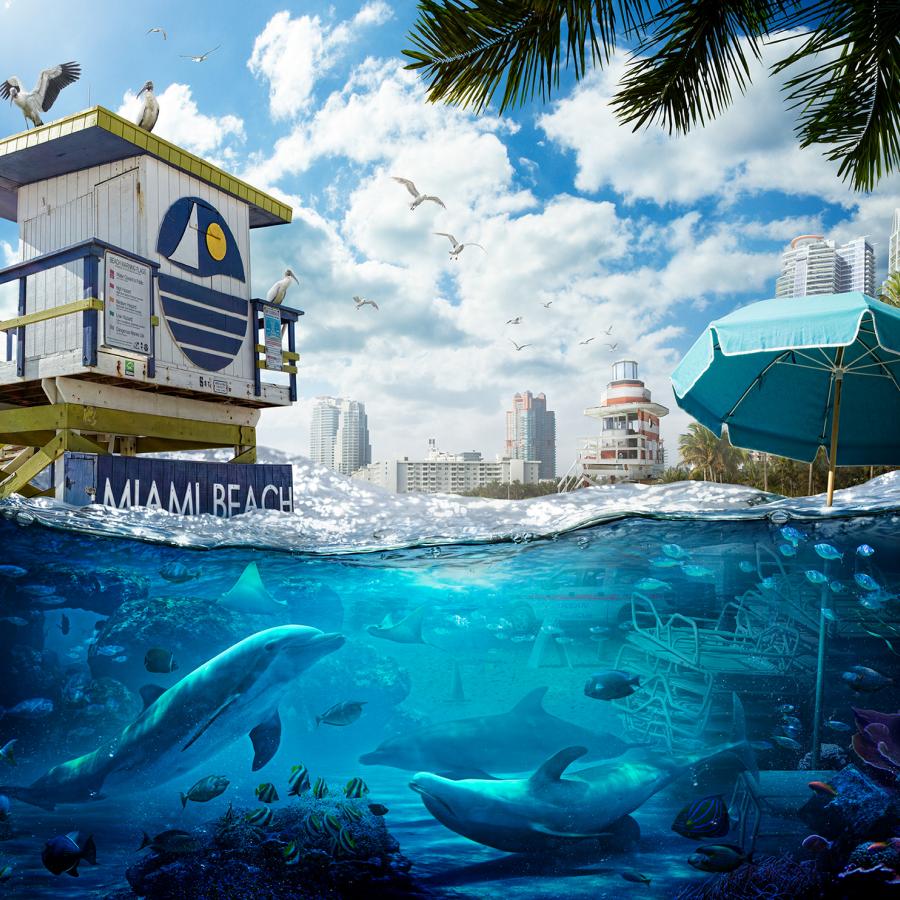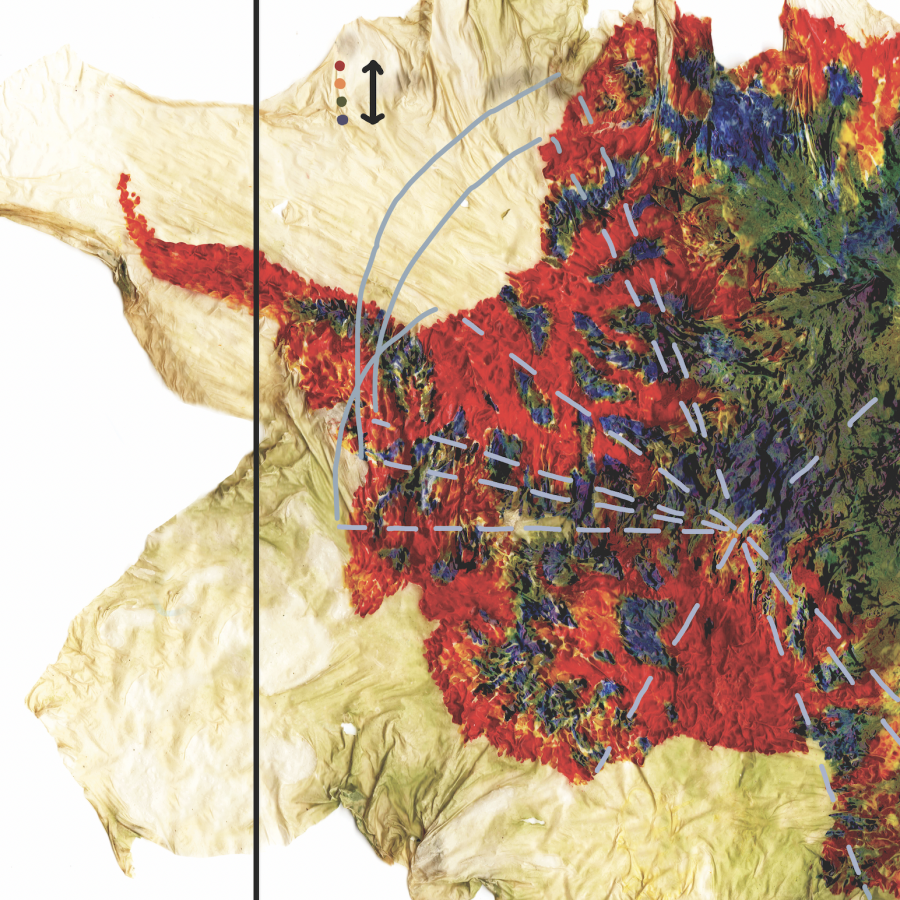by ibby
As Hurricane Ida crashes into the Louisiana coastline with climate change lurking behind her intensity we felt timely to share a visually stunning, hand-painted look at the impact of the climate crisis on our most precious coastal communities by authors Christina Conklin and Marina Psaros.
Author and artist Conklin has always drawn inspiration from nature—particularly the oceans, which she uses as both site and metaphor. In her new book THE ATLAS OF DISAPPEARING PLACES: OUR COASTS AND OCEANS IN THE CLIMATE CRISIS she shares a series of maps she made to reveal how the climate crisis may remake some of most beloved coastal areas, from San Francisco to Shanghai, the ice shelves of Antarctica to the island nations of the South Pacific.
Conklin painted these awe-inspiring maps on sheets of dried “sea lettuce,” members of the genus Ulva, a group of green macroalgae found in many parts of the world. The process involved hauling forty pounds of wet, briny seaweed back to her studio in Half Moon Bay, California and washing and laying each sheet out to dry in an iteration of “women’s work,” such as basketmaking or weaving, in which materials have to be seasonally gathered and processed before the artwork can be made. Only two cells thick, the green sheets of Ulva then bleach in the sun to a beautiful, translucent parchment that is brittle, fragile and luminous.
Beautiful maps and hopeful vignettes about the future temper this important book about climate change in our world — Library Journal
Each map is painted with water-soluble inks. If water touches the ink, it will wash away. If the parchment gets wet, it will instantly reanimate into slippery, slimy sheets, and the map is gone, elusive as the passage of time. All of the maps in this beautiful book were created from a single piece of Ulva perhaps 150 square feet in size, the largest Christina has ever found. Each map uses the color scheme shared by almost all climate researchers—red equals danger! Most of the seaweed images were digitally layered onto a Google Earth image to provide geographical reference points. View Conklin’s captivating work here and more about the author after the jump.
About the Authors
Christina Conklin is an artist, writer, and researcher whose work investigates the intersection of natural systems and belief systems, often using the ocean as both site and metaphor. Her essays, exhibitions, and installations consider our cultural responses to the intersecting ecological and social crises of our time. She holds an MFA from California College of the Arts and has exhibited internationally. She is currently working with thought leaders and activists around the world to help communities create regenerative cultural systems. She lives with her husband and two children in Half Moon Bay, California.
Marina Psaros is a science and communications expert, working in the field of climate change adaptation. She is the co-founder of the King Tides Project, an international citizen science effort to document sea level rise, and the creator of YESS, an educational program in California that empowers high school students to engage directly in sea level rise science and policy in their communities. Psaros has worked in the public and private sector on coastal climate change and adaptation in California, Massachusetts, and Germany for over a decade.

